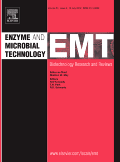
BIOTECHNOLOGY AND APPLIED BIOCHEMISTRY
Scope & Guideline
Transforming Discoveries into Applications.
Introduction
Aims and Scopes
- Biopharmaceutical Development:
The journal emphasizes the design, synthesis, and characterization of biopharmaceuticals, including vaccines, proteins, and nanocarriers aimed at therapeutic applications. - Biochemical Engineering and Process Optimization:
A core focus is on optimizing bioprocesses for the production of enzymes, metabolites, and other valuable compounds using microbial and plant systems. - Nanobiotechnology:
Research on the synthesis and application of nanomaterials for drug delivery, biosensing, and diagnostic purposes is a significant area of interest. - Molecular Biology and Genetics:
Studies involving gene editing, expression analysis, and the functional characterization of genes related to various diseases and metabolic pathways are prevalent. - Environmental Biotechnology:
The journal covers bioremediation strategies, waste management, and the development of sustainable biotechnological solutions for environmental issues. - Food Biotechnology:
Research on fermentation technology, functional foods, and the use of probiotics and prebiotics in improving health outcomes is also a key area.
Trending and Emerging
- Precision Medicine and Personalized Therapies:
The emergence of research focused on tailored therapeutic approaches, including gene therapy and personalized vaccines, is trending, reflecting advancements in genomics and biotechnology. - Sustainable and Green Biotechnologies:
There is a growing interest in environmentally friendly biotechnological processes, including bioremediation and the use of renewable resources in producing bioactive compounds. - Innovative Drug Delivery Systems:
Research into novel drug delivery mechanisms, particularly using nanotechnology and smart materials, is gaining traction, highlighting the need for effective and targeted therapies. - Biosensors and Diagnostic Technologies:
The development of advanced biosensors for real-time diagnostics, especially in the context of infectious diseases and cancer biomarkers, is increasingly recognized as essential. - Synthetic Biology and Metabolic Engineering:
A notable rise in studies employing synthetic biology techniques to engineer microbial pathways for the production of valuable metabolites and drugs is evident.
Declining or Waning
- Traditional Enzyme Applications:
Research focusing solely on traditional enzyme applications without innovative approaches or modifications has decreased, as newer methods and technologies gain prominence. - Basic Microbial Studies:
Papers centered on basic microbial taxonomy or isolated strains with no applied biotechnology focus are becoming less common, as the field moves towards more application-driven research. - Conventional Agricultural Practices:
Studies emphasizing conventional agricultural practices without integrating biotechnological advancements or sustainable approaches are waning. - Single-Component Drug Discovery:
Research focused solely on single-compound drug discovery, without a systems biology or multi-target approach, is declining as integrative methods gain traction. - Generalized Reviews:
General reviews lacking original research contributions and specific insights into current biotechnological advancements are less favored in recent issues.
Similar Journals

Applied Biological Chemistry
Advancing the Frontiers of Biological Science.Applied Biological Chemistry, published by SPRINGER SINGAPORE PTE LTD, is a premier open access journal that has been serving the biological sciences community since 2016. With an ISSN of 2468-0834 and E-ISSN of 2468-0842, this journal is committed to disseminating high-quality research in the fields of Biochemistry, Genetics, Molecular Biology, and Organic Chemistry. The journal holds a commendable position within the scientific community, ranking in the Q2 quartile for both Biochemistry and Organic Chemistry niches as of 2023. It aims to foster innovative research and facilitate discussions that propel the understanding of complex biochemical processes and molecular techniques. By providing open access to its contents, Applied Biological Chemistry ensures that valuable research is readily available to researchers, professionals, and students globally, encouraging collaboration and knowledge sharing in this rapidly evolving discipline. Its pivotal role in enhancing scientific communication in the Netherlands and beyond is further underscored by a steadily increasing impact in the academic arena.

BMC BIOTECHNOLOGY
Unlocking Innovations in Biochemical ResearchBMC Biotechnology, a leading journal in the field of biotechnology, is published by BMC and has been a pivotal platform for open-access research since 2000. With a focus on the diverse areas of biotechnology, including biochemistry, genetics, and molecular biology, this journal holds a prestigious Q2 ranking in its category for 2023 and demonstrates a commendable percentile rank in the top 66th for its Scopus listings. Operating out of the United Kingdom and covering research from 2001 to 2024, BMC Biotechnology is committed to disseminating high-quality, rigorously peer-reviewed articles that foster advancements and innovations in the biotechnology landscape. Researchers, professionals, and students alike will benefit from the journal's rich content and dedicated commitment to enhancing scientific discourse within the realm of biotechnology.

ENZYME AND MICROBIAL TECHNOLOGY
Exploring the Frontiers of Biochemical InnovationENZYME AND MICROBIAL TECHNOLOGY, a premier journal published by Elsevier Science Inc, serves as a pivotal platform for researchers and professionals dedicated to exploring the dynamic intersections of microbiology, biochemistry, and bioengineering. With a rich publication history dating back to 1979 and converging until 2024, this journal has established itself within the Q2 quartile rankings across multiple categories, including Applied Microbiology and Biotechnology, Biochemistry, Bioengineering, and Biotechnology, highlighting its influential role in advancing scientific discourse. It holds impressive Scopus rankings, where it is recognized in the 79th percentile for Applied Microbiology and Biotechnology and ranks favorably in related fields, making it a valuable resource for academic and industrial researchers looking to stay abreast of the latest developments. Although it does not currently offer Open Access options, ENZYME AND MICROBIAL TECHNOLOGY remains an essential read for anyone invested in the biotechnological applications of enzymes and microorganisms.

FOOD SCIENCE AND BIOTECHNOLOGY
Exploring the Intersection of Science and Culinary ArtsFOOD SCIENCE AND BIOTECHNOLOGY, published by the Korean Society of Food Science & Technology (KOSFOST), stands as a prominent peer-reviewed journal dedicated to advancing knowledge in the fields of food science, biotechnology, and applied microbiology. With ISSN 1226-7708 and E-ISSN 2092-6456, this journal serves as a pivotal platform for disseminating high-impact research from South Korea and beyond, reflecting a robust Q2 ranking in multiple categories including Applied Microbiology and Biotechnology, Biotechnology, and Food Science as of 2023. The journal's influence is further emphasized by its positions in various Scopus ranks, where it showcases a commendable percentile ranking in Agricultural and Biological Sciences and Biochemistry. Although access options remain limited, the journal’s objectives revolve around the publication of innovative research, fostering interdisciplinary collaboration, and facilitating the exchange of ideas among a diverse community of researchers, professionals, and students. Whether you are involved in food technology, microbial biotechnology, or nutritional sciences, FOOD SCIENCE AND BIOTECHNOLOGY are instrumental in shaping the future of these critical fields, propelling advancements that enrich our understanding of food systems and health.

Current Research in Biotechnology
Empowering Researchers to Shape the Biotechnological LandscapeCurrent Research in Biotechnology is a leading journal published by Elsevier, dedicated to the dissemination of high-quality research in the rapidly evolving field of biotechnology. With an ISSN of 2590-2628, this journal has garnered a reputation for its insightful contributions, currently holding a prestigious Q2 ranking in the Biotechnology category, and placing in the 66th percentile within the Scopus rankings for Biochemistry, Genetics, and Molecular Biology. Running from 2019 and set to continue through 2024, the journal aims to provide a platform for groundbreaking studies that advance our understanding and application of biotechnological innovations. Although it operates under a subscription model, the journal ensures that research impacts a wide audience, facilitating collaboration among researchers, professionals, and students across the globe. By focusing on a diverse range of topics within biotechnology, Current Research in Biotechnology is committed to cultivating a vibrant discourse and fostering advancements that address critical challenges in health, agriculture, and environmental sustainability.

PROCESS BIOCHEMISTRY
Transforming biochemistry with groundbreaking discoveries.PROCESS BIOCHEMISTRY is a premier journal published by Elsevier Science Ltd, dedicated to advancing the field of biochemistry, microbiology, and bioengineering. With an ISSN of 1359-5113 and an E-ISSN of 1873-3298, this renowned journal is recognized for its impactful contributions, as demonstrated by its Q2 ranking in Applied Microbiology and Biotechnology, Biochemistry, and Bioengineering categories as of 2023. Covering a wide array of topics since its inception in 1950, PROCESS BIOCHEMISTRY serves as a crucial platform for researchers and professionals to disseminate innovative findings and develop new insights in enzyme technology, metabolic pathways, and bioreactor design. Although the journal operates under a non-open access policy, it remains vital for those engaged in cutting-edge biochemical research and development. Located in the United Kingdom, it continues to facilitate scientific discourse and foster collaboration among industry experts and academic scholars worldwide.

EuroBiotech Journal
Advancing Biotechnology Through Open Access ResearchEuroBiotech Journal, published by SCIENDO, is an essential open-access platform for researchers and professionals in the fields of biomedical engineering, biotechnology, food science, genetics, molecular biology, and molecular medicine. Since its establishment in 2017, the journal has aimed to disseminate high-quality, peer-reviewed research that fosters innovation and collaboration within the European biotechnological landscape and beyond. With its target audience comprising academic scholars, industry practitioners, and students, EuroBiotech Journal has successfully carved a niche, achieving notable Scopus ranks and quartiles, such as Q3 in Biotechnology and Food Science. Based in Warsaw, Poland, the journal welcomes manuscripts that contribute to the vast array of current topics, addressing pressing challenges and discovering solutions pertinent to biotechnology and its applications. As you explore the latest advancements published in this journal, you will find a rich source of knowledge that promotes a deeper understanding of the dynamic and evolving field of biotechnological research.

PREPARATIVE BIOCHEMISTRY & BIOTECHNOLOGY
Elevating scientific discourse in biochemistry and biotechnology.PREPARATIVE BIOCHEMISTRY & BIOTECHNOLOGY, published by Taylor & Francis Inc, serves as a vital platform for advancing research in the fields of biochemistry, biotechnology, and related areas of medicine. With an ISSN of 1082-6068 and an E-ISSN of 1532-2297, this journal has established itself with a notable Q3 ranking in the 2023 categories of Biochemistry, Biotechnology, and Miscellaneous Medicine, reflecting its relevance and contribution to these disciplines. The journal encompasses a wide range of topics, providing crucial insights into preparative methods, innovative biotechnological applications, and their implications for various medical advancements. Although not open access, the journal's rich content is crucial for researchers and professionals aiming to stay abreast of the latest developments and methodologies in biochemistry and biotechnology. With an enduring commitment to excellence since its inception in 1996, the journal remains an essential resource for academics and practitioners dedicated to advancing scientific knowledge and practical applications.

TRENDS IN BIOTECHNOLOGY
Pioneering Research for a Biotechnological FutureTRENDS IN BIOTECHNOLOGY, published by CELL PRESS, stands as a premier journal since its inception in 1983, focusing on the dynamic and ever-evolving fields of bioengineering and biotechnology. With a notable impact factor and ranking in the top quartile (Q1) of its categories for 2023, this journal is recognized for its contribution to advancing scientific knowledge, boasting a Scopus rank of #5/311 in Biotechnology and #5/162 in Bioengineering, placing it in the 98th and 97th percentiles, respectively. Although it does not operate under an open access model, TRENDS IN BIOTECHNOLOGY ensures a rigorous peer-review process that provides a platform for high-quality research that influences both academic and industrial advancements. The journal's objectives encompass the dissemination of cutting-edge research findings, reviews, and insights that foster innovation in biotechnological applications, making it an invaluable resource for researchers, professionals, and students alike. With its broad scope across the intersection of biosciences and technology, TRENDS IN BIOTECHNOLOGY continues to lead discussions and developments that shape the future of the biotechnology landscape.

Minerva Biotechnology and Biomolecular Research
Fostering Knowledge in the Dynamic World of Biomolecular ResearchMinerva Biotechnology and Biomolecular Research is an emerging journal published by EDIZIONI MINERVA MEDICA, dedicated to the fields of biotechnology, biomolecular research, and applied microbiology. With an ISSN of 2724-542X and an E-ISSN of 2724-5934, this journal aims to foster deeper understanding and innovative advancements in these rapidly evolving disciplines. The journal has been categorized in the Q4 quartile across four categories in the 2023 rankings, highlighting its nascent yet growing influence within the scientific community. Operating on an open-access model, it enhances accessibility and encourages the dissemination of knowledge to researchers, professionals, and students alike. Set in the heart of Italy, specifically at CORSO BRAMANTE 83-85 INT JOURNALS DEPT., 10126 TURIN, ITALY, Minerva Biotechnology and Biomolecular Research will continue to enrich the scientific literature from its inception in 2021 through 2024 and beyond, contributing to the global dialogue on biotechnological innovations and molecular research.